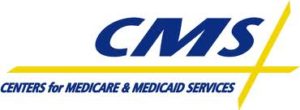SNAP Asks PA Delegation for Help From COVID-19 Relief Bill
The next federal COVID-19 relief bill should include more resources for the Provider Relief Fund, SNAP has told members of Pennsylvania’s congressional delegation.
 The bill also should include additional targeted funding for safety-net hospitals, help with staffing, an extension of the current moratorium on the Medicare sequestration, and forgiveness for safety-net hospitals for loans they received under the Medicare Accelerated and Advance Payment Program.
The bill also should include additional targeted funding for safety-net hospitals, help with staffing, an extension of the current moratorium on the Medicare sequestration, and forgiveness for safety-net hospitals for loans they received under the Medicare Accelerated and Advance Payment Program.
This was the message the Safety-Net Association of Pennsylvania conveyed last week in a letter to members of Pennsylvania’s congressional delegation. See that letter here.
 The Medicaid DSH cut was included in the 2010 health care reform law in anticipation of a great reduction in the number of uninsured people leaving hospitals providing much less uncompensated care and therefore not in need of as much DSH money. The law’s reach has not proven to be as great as anticipated, however, and two developments since the law’s passage have put a damper on the expected rise in the number of insured Americans: a court decision that made it optional for states to expand their Medicaid program and the repeal of the requirement that everyone purchase health insurance.
The Medicaid DSH cut was included in the 2010 health care reform law in anticipation of a great reduction in the number of uninsured people leaving hospitals providing much less uncompensated care and therefore not in need of as much DSH money. The law’s reach has not proven to be as great as anticipated, however, and two developments since the law’s passage have put a damper on the expected rise in the number of insured Americans: a court decision that made it optional for states to expand their Medicaid program and the repeal of the requirement that everyone purchase health insurance. According to a new study, safety-net, academic, and rural hospitals have enjoyed improved performance under the program since Medicare began organizing hospitals into peer groups based on the proportion of low-income patients they serve rather than simply comparing individual hospital performance to that of all other hospitals.
According to a new study, safety-net, academic, and rural hospitals have enjoyed improved performance under the program since Medicare began organizing hospitals into peer groups based on the proportion of low-income patients they serve rather than simply comparing individual hospital performance to that of all other hospitals. According to a new study published in Health Affairs,
According to a new study published in Health Affairs,

 In this new model, the Innovation Center
In this new model, the Innovation Center